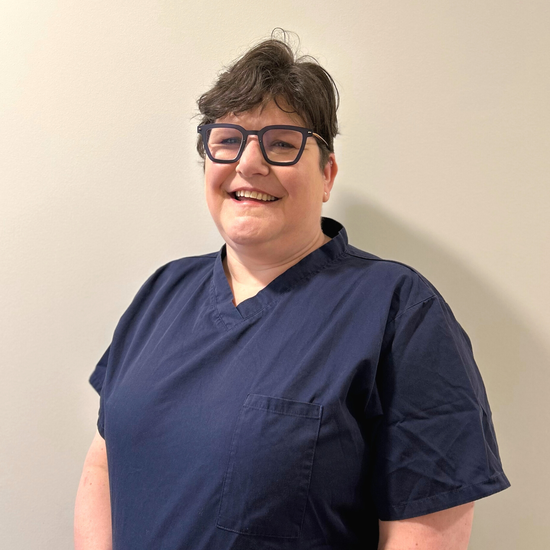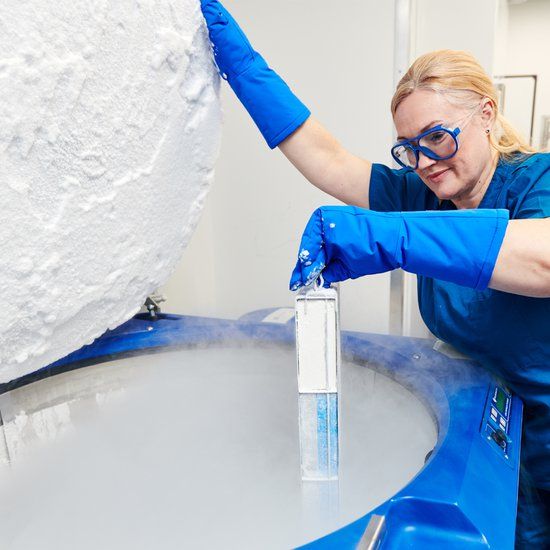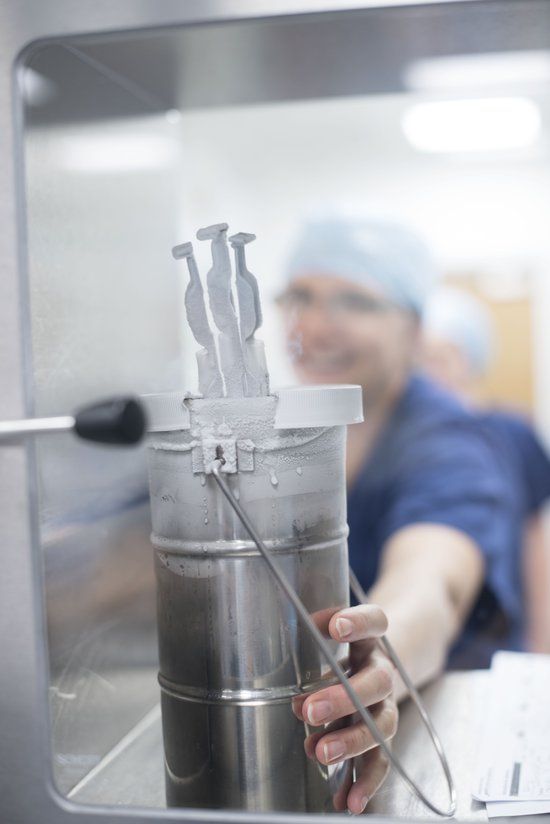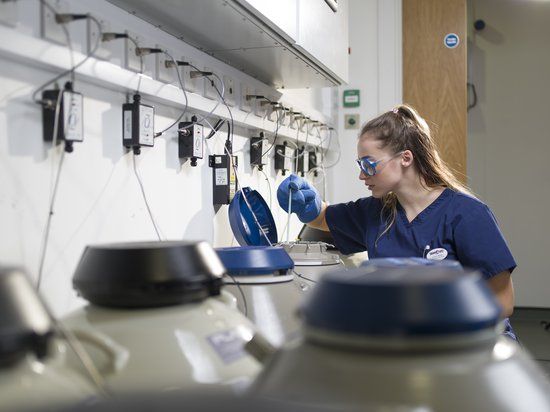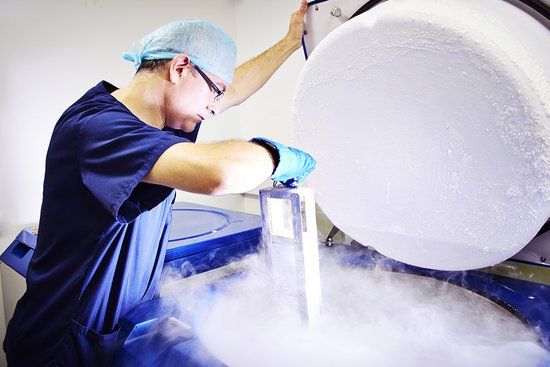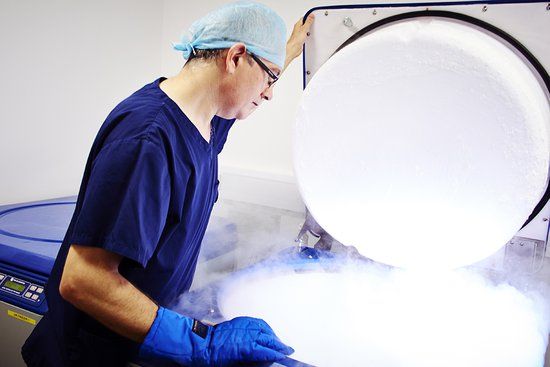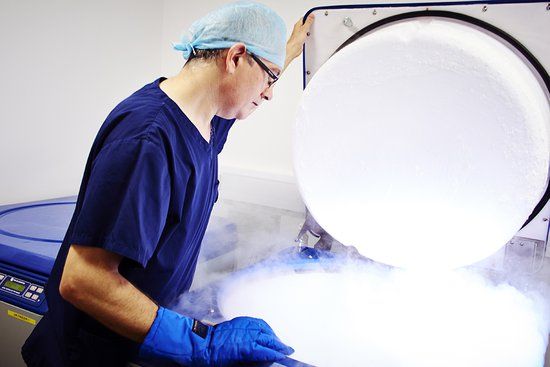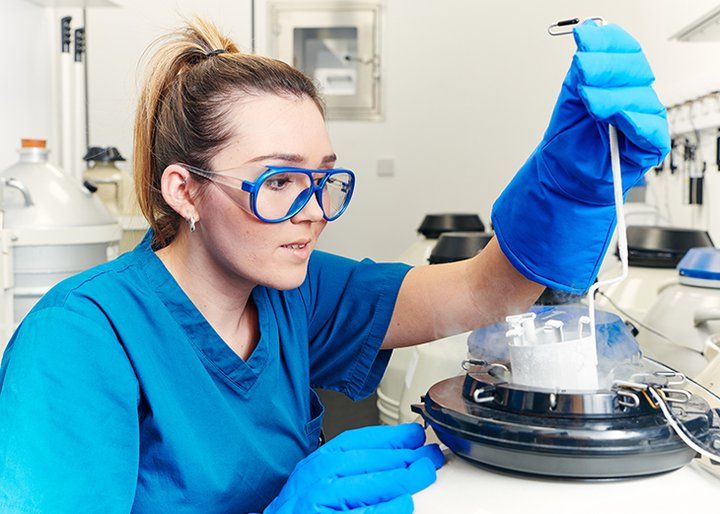
Over the last ten years, we have seen an increase of women choosing to preserve their eggs for medical reasons or to focus on other life ambitions, such as their careers or travelling before starting a family later in life.
As technology advances and information is becoming more available about egg freezing, it has become more common in decisions for women who still want the best chance of being mothers in the future but are just not quite ready yet.
So why has egg freezing become so popular?
There are many reasons women choose to freeze their eggs, which often fall into one of two camps – medical and non-medical. Medical egg freezing is freezing eggs to use a later date because of a condition that can affect fertility. A cancer diagnosis would fall into this category, where chemotherapy or the removal of reproductive organs will affect pregnancy chances. Other conditions, such as endometriosis, would be another medical reason, as would gender re-assignment.
Non-medical reasons are related to women who postpone parenthood due to lifestyle choices such as career, education, or simply because they have not met the right partner. Non-medical reasons have been on the rise for some time as women have the option to preserve their younger, fresher and more fertile eggs while pursuing other life choices.
Whatever your reason, we want to help you understand everything you need to know about egg freezing and reassure you that we are here to support you every step of the way. In this blog, we look at what is involved in egg freezing, offer advice on the process, and recommend the right time to freeze your eggs.
What is egg freezing?
Egg freezing is a method used to preserve fertility potential. Also known as oocyte cryopreservation, it involves collecting a woman’s eggs, then freezing and storing them until the woman is ready to start a family.
Women can use their frozen eggs to conceive with a partner or, if you’re single or in a same-sex relationship, with a sperm donor. Alternatively, you can use a donor that you already know. Manchester Fertility has its own sperm bank, Semovo, and can offer patients donor match options depending on their chosen characteristics. Another option is to implant your embryos (eggs that have been fertilised with sperm) into another female who can carry the pregnancy.
When is the best time to freeze your eggs?
Age is undoubtedly a major deciding factor. After all, if you’re not ready to conceive but are concerned about missing your most fertile years, egg freezing can offer that extra choice. So, when is the best time to freeze your eggs?
To increase your chances of pregnancy success in later life, the younger you are at the freezing stage, the better. This is because the quality and quantity of your eggs decline as you get older, usually in your 30s. Therefore, for the best results, we recommend freezing occurs during your 20s or early 30s. However, anytime under 35 will give you higher success rates than natural conception as you get older.
Do you fit the criteria?
In order to receive the treatment, your ovarian reserve is tested. This is done with a quick and easy Anti-Mullerian Hormone (AMH) blood test. An assessment provides more clarity on how many eggs you possess and how likely you are to respond to the stimulation needed in the process.
We will also look at your complete medical history to determine whether any conditions may affect your chances of future pregnancy. This is included as part of the treatment, as well as access to our highly experienced fertility counsellors.
What is the process?
1. Initial investigation scans and counselling
As well as the aforementioned ovarian tests, professional counselling will also be provided to determine whether fertility preservation is right for you and your circumstances.
2. Consultation with a fertility specialist
Your test results will be delivered along with discussions around your complete medical history, outlining your chances of future conception to help you make an informed decision.
3. Consent
Official consent is then given to go ahead. This includes deciding how long you wish to store your eggs and what should happen to them if something happens to you.
4. Ovarian stimulation
This initial stage involves taking fertility medication that help you produce mature eggs for freezing.
5. Egg collection
Your eggs are collected in our theatre using ultrasound guidance and sedation.
6. Egg Freezing (Oocyte Cryopreservation)
Laboratory cryopreservation of your eggs is completed using vitrification, a fast-freezing method ensuring high survival rates for frozen eggs.
How long can eggs be frozen?
Women can choose to legally freeze and store their eggs up to a maximum of 10 years. However, after the 10 years consent period has ended, there is an opportunity for the women who preserved their eggs for medical reasons to review and extend the storage up to 55 years. The current legislation is under review to allow women who wish to store their eggs for social reasons to also be able to renew their consent period after the standard storage.
What are the chances of a successful pregnancy when I decide to use my eggs?
Chances of future pregnancy using your frozen eggs depend on lots of different factors, primarily your age at the time your eggs are frozen. As previously mentioned, the younger you are, the higher the quality of the eggs that are being preserved.
Pregnancy is also influenced by the number of eggs we retrieve, how successfully they survive the freeze-thaw process, how many are fertilised and how many quality embryos are available for transfer. We want to reassure you; our highly skilled embryologists use the most advanced techniques and are very experienced in the egg freezing process resulting in over 80% freeze-thaw rate.
Depending on your age and medical history, we may advise you to consider IVF and freeze embryos instead. If needed, you can have IVF using donor sperm at Manchester Fertility, so you have embryos to freeze. All your options will be discussed during your consultation with our expert fertility specialist.
Where can I receive this treatment?
Manchester Fertility is an award-winning clinic that takes pride in ensuring a comfortable, personalised and effective egg-freezing treatment. From our state-of-the-art laboratory, our expert embryologists ensure your eggs are frozen, stored and thawed in line with an intricately timed treatment cycle.
When the time is right, you have the freedom to choose whether you want to fertilise your eggs with sperm from your partner or from a sperm donor. From start to finish, our dedicated team goes above and beyond to provide high quality care and support you at every stage of your fertility journey.
What support will you receive?
No matter what stage you are at, we are here for you. You will be supported by our specialists and expert patient teams to our experienced counsellors. We also have a Fertility Support Group on Facebook, run by Senior Patient Advisor Hayley. This gives you the opportunity to connect with other patients and share your experiences.
Our team can be contacted by phone and email or, more conveniently, by our dedicated mobile app, SALVE, which puts support and advice at your fingertips. It enables you to send messages to the team, ask questions, schedule appointment reminders, and access documents or information.
Book an appointment today
Visit us here for more information or give us a call on 0161 300 2730. And when the time is right for you, book an appointment with one of our friendly patient team members to start the conversation about your egg-freezing journey.
Last updated: 30th June 2023

